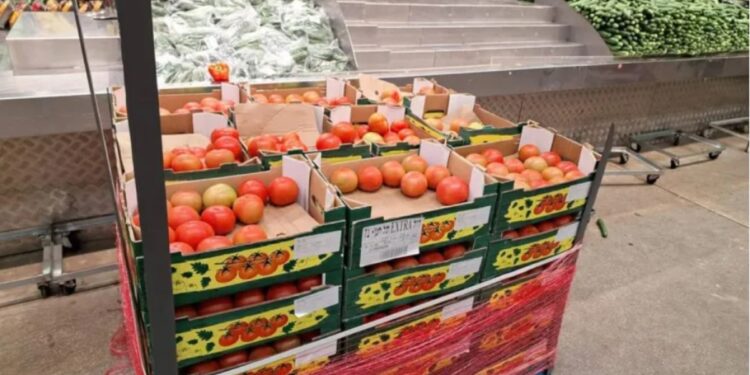Aljazeera.net correspondents
Oman A Jordanian government source revealed to Al Jazeera Net that Jordan has completely refused to export vegetables and fruits to Israel, and not just refused to export tomatoes, according to what was published by Israeli media yesterday, Tuesday.
According to a report by the Israeli newspaper Yedioth Ahronoth, Jordan refused to export tomatoes to Israel after the Israeli Ministry of Health allowed their import under certain conditions.
Last August, the Israeli Ministry of Health announced that it had banned the import of tomatoes from Jordan after questioning the safety of the water used to irrigate tomato crops, and allegations of discovering cholera bacteria in the Yarmouk River water and in some agricultural products imported from there, which the Jordanian authorities refuted at the time by stressing that the Yarmouk River water was completely free of any pollution.
Refute the allegations
The Israeli newspaper considered that the dispute that broke out between Amman and Tel Aviv in this regard may be a pretext for Jordan to “punish” Israel for what it is doing in Gaza, the West Bank and Lebanon.
The Water Resources Monitoring Program in Jordan has confirmed that it has conducted all laboratory analyses with the aim of ensuring its quality and controlling its quality for all uses and its compliance with the internationally approved Jordanian specifications for drinking and irrigation water according to the best levels in developed countries, which confirms the safety of water and crops, and their meeting of international requirements and standards, whether health, environmental or food, as well as the quality and safety of agricultural exports.
Al Jazeera Net learned from an informed source that the Israeli allegations about the contamination of some Jordanian agricultural products almost stopped the export of Jordanian vegetables and fruits to the Gulf states, especially Saudi Arabia. However, the contacts made by the Jordanian government with the Saudi authorities, and the re-conducting of laboratory tests on a number of types of Jordanian vegetables and fruits, which confirmed the lack of credibility of the Israeli allegations, prevented a Saudi decision to stop the import of Jordanian vegetables.
In turn, the former director of the Jordanian Association of Exporters and Producers of Vegetables and Fruits, Abdullah Al-Zaben, said, “Jordanian farmers categorically refuse to export vegetables and fruits to the Israeli side.”
Speaking to Al Jazeera Net, he explained that “what is being talked about in Israel regarding the presence of a germ in Jordanian tomatoes is nothing but Israeli lies,” attributing the aim of these allegations to the Israelis’ attempt to inflict the greatest possible damage on the Jordanian product as a result of Jordan’s positions supporting Palestine.
Abdullah Al-Zaben stressed that “the association’s members are committed to not exporting agricultural products to the Zionist entity, and that it has been, is, and will remain steadfast in its position towards the Palestinian cause.”
Hit the Jordanian market
Al-Zaben stressed that the occupation is trying to tarnish the reputation of Jordanian agricultural products exported to Gulf or foreign markets by spreading lies about the presence of cholera, adding that the Jordanian agricultural product prepared for export is 100% fit for human consumption.
Since the start of the Battle of the Flood of Al-Aqsa on October 7, 2023, Israel has turned to Jordan as a result of its inability to harvest the crops of the Gaza Strip and the shortage of workers there due to the ongoing aggression on the Strip, in search of alternative sources to secure its needs for agricultural products.
According to data from the Jordanian Department of Statistics, the value of Jordanian exports to Israel increased by 15% during the past year compared to 2022, and Israel imported more than 46,000 tons of vegetables and fruits from Jordan in the period from August 8, 2023 to August 8.
Imports mainly include tomatoes, cucumbers, peppers and zucchini, with olives and dates to be imported later in the year.
Halting the export of Jordanian vegetables and fruits to the Israeli occupation is one of the most prominent demands of the ongoing Jordanian movement to denounce the occupation and the war on the Gaza Strip, in addition to other demands that aim to oppose economic normalization with the occupation in all its forms, and to stop the so-called land bridge that supplies the occupation with goods via trucks passing through Jordan towards Israel coming from the Emirates and other countries.



